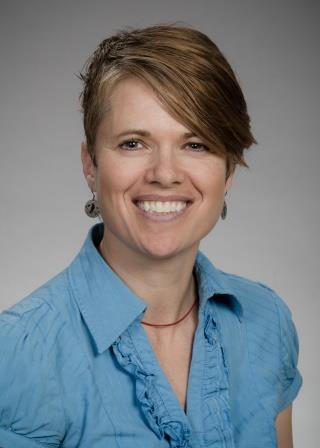Laura Katers, PA-C, MCHS, MS began her medical career in 2013 as a primary care provider in community medicine where the lack of mental health care access was so glaring she earned additional training and CME to better screen, diagnose and treat anxiety and depression disorders during the influx of new patients at the start of the Affordable Care Act. Nearly 50% of her patients hadn’t seen a medical provider in over 5 years. At the time, she also developed an interest in pain management as pain medicine is such a complex, nuanced and misunderstood phenomenon, and so many patients were suffering and forgoing care because of stigma or fear. Or, on the flipside, were mired in addiction.
In 2016 Ms. Katers began work as part of an interdisciplinary complex pain team at the University of Washington Medical Center and teaches courses in behavioral medicine with UW MEDEX Northwest.
Ms. Katers’s interest in integrated care stems back to before PA school, when she worked as an addiction counselor and detox supervisor in Denver, CO. It was here that she saw the true failings of society, the people who fell through the cracks due to untreated mental illness, poverty, addiction, and for some, just plain bad luck. She was trained in substance abuse treatment and counseling and by way of a collaborative approach to care (at the time between local ERs, law enforcement, social workers, mental health, and primary care) she recognized a medical degree would allow her to become a stronger patient advocate. The drive to optimistically increase access to mental health care, patient by patient, is at the underbelly of her clinical interests and goes back to witnessing very dire situations rooted in trauma and addiction, but from which people did blossom with the right support and follow up.
Ms. Katers is interested in finding new solutions to integrating mental health care access not only in the community but also in the hospital, where for some this is the one point of contact to offer aid or intervene. Given that co-occurring psychiatric and substance use disorders can often be linked with pain, she hopes to build networks and collaborations with other community members to increase follow up for patients once they are discharged and to decrease the burden on primary care providers (who may have no mental health training).
Additionally, her team is in the process of establishing a perioperative pain clinic at UWMC where she hopes to share the trainings of the fellowship not only with other providers and staff, but also with patients. She is personally interested in pain psychology, telemedicine, and non-pharmacological approaches to pain management and in developing grants to bring these tools to the community.
Lastly, as an educator, she is interested in opportunity to develop mental health training for frontline providers, including creating affordable CME in primary care, and/or curriculum development with increased focus on behavioral medicine during student training.
